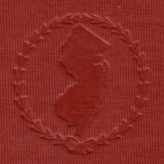 |  |  |
|
| ||
 |  |  |
 |  |  |
|
| ||
 |  |  |
|
|
By Frank R. Stockton
Originally published in 1896
This Web version, edited by GET NJ, COPYRIGHT 2003
WHEN we consider the American Revolution, we are apt to think of it as a great war in which all the inhabitants of the Colonies rose up against Great Britain, determined, no matter what might be the hardships and privations, no matter what the cost in blood and money, to achieve their independence and the right to govern themselves.
But this was not the case. A great majority of the people of the Colonies were ardently in favor of independence; and we have no right to say that some of them were but there were also a great many people, not very good people, who were as well satisfied that their country should be a colony of Great Britain as the Canadians are now satisfied with that state of things, and who were earnestly and honestly opposed to any separation from the mother country.
This difference of opinion was the cause of great trouble and bloodshed among the colonists themselves, and the contests between the Tories and the Whigs were nowhere more bitter than in New Jersey. In some parts of the Colony, families were divided against themselves; and not only did this result in quarrels and separations, but fathers and sons, and brothers and brothers, fought against each other. At one time the Tories, or, as they came to be called, "refugees," were in such numbers that they took possession of the town of Freehold, and held it for more than a week; and when at last the town was retaken by the patriotic forces, most of them being neighbors and friends of the refugees, several prominent Tories were hanged, and many others sent to prison.
The feeling between the Americans of the two different parties was more violent than that between the patriots and the British troops, and before long it became entirely unsafe for any Tory to remain in his own home in New Jersey. Many of them went to New York, where the patriotic feeling was not so strong at that time, and there they formed themselves into a regular military company called the "Associated Loyalists;" and this company was commanded by William Temple Franklin, son of the great Benjamin Franklin, who had been appointed governor of New Jersey by the British Crown. He was now regarded with great hatred by the patriots of New Jersey, because he was a strong Tory. This difference of opinion between William Franklin and his father was the most noted instance of this state of feeling which occurred in those days.
It will be interesting to look upon this great contest from a different point of view than that from which we are accustomed to regard it; and some extracts from the journal of a New Jersey lady who was a decided Tory, will give us an idea of the feeling and condition of the people who were opposed to the Revolution.
This lady was Mrs. Margaret Hill Morris, who lived in Burlington. She was a Quaker lady, and must have been a person of considerable wealth ; for she had purchased the house on Green Bank, one of the prettiest parts of Burlington, overlooking the river, in which Governor Franklin had formerly resided. This was a fine house, and contained the room which afterwards became celebrated under the name of the "Auger Hole." This had been built, for what reason is not known, as a place of concealment. It was a small room, entirely dark, but said to be otherwise quite comfortable, which could be approached only through a linen closet. In order to get at it, the linen had to be taken from the shelves, the shelves drawn out, and a small door opened at the back of the closet, quite low down, so that the dark room could only be entered by stooping.
In this "auger hole," Mrs. Morris, who was a strong Tory, but a very good woman, had concealed a refugee who at the time was sought for by the adherents of the patriotic side, and who probably would have had a hard time of it if he had been caught, for he was a person of considerable importance.
The name of the refugee was Jonathan Odell, and he was rector of St. Mary's Church in Burlington. He was a learned man, being a doctor as well as a clergyman, and a very strong Tory. He had been of much service to the people of Burlington; for when the Hessians had attacked the town, he had come forward and interceded with their commander, and had done his work so well that the soldiers were forbidden to pillage the town. But when the Hessians left, the American authorities began a vigorous search for Tories; and Parson Odell was obliged to conceal himself in good Mrs. Morris's "auger hole."
| Next |
| Main Menu |

|

|
UrbanTimes.com |